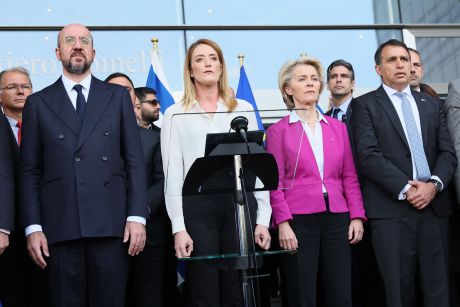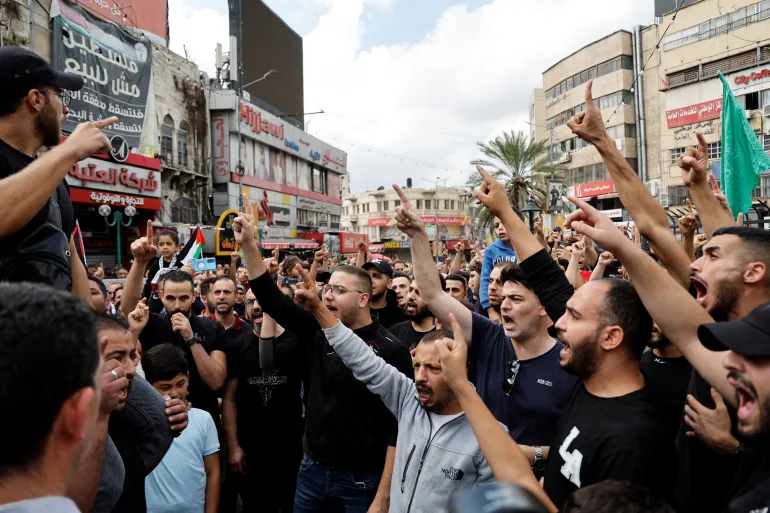n the face of the ongoing Israel-Hamas war, European Union (EU) leaders are gearing up for a crucial meeting to solidify a unified stance after days of conflicting messages that have left the bloc and the international community puzzled.
The emergency video conference, scheduled for Tuesday, is set to address the EU’s response to the escalating conflict, which has seen a series of confusing and sometimes contradictory statements from EU officials. These mixed messages have not only perplexed observers but have also added to the tensions within the EU.
In a letter inviting leaders to the meeting, European Council President Charles Michel highlighted the urgency of the situation, stating, “It is of utmost importance that the European Council sets our common position and establishes a clear unified course of action that reflects the complexity of the unfolding situation.”
One of the issues that drew considerable attention was Ursula von der Leyen’s visit to Israel, where she expressed the EU’s support for the country. Her remarks were met with criticism as she was perceived to be speaking on behalf of the entire EU, despite foreign affairs typically being a matter for member states and the European Council. This incident underscores the need for clarity in the EU’s communication regarding foreign policy matters.
Furthermore, von der Leyen faced backlash for not explicitly mentioning the EU’s expectations that Israel would adhere to international humanitarian law in its response to Hamas’s attacks. In contrast, other EU leaders emphasized this point. The EU’s foreign policy chief, Josep Borrell, even labeled Israel’s siege of Gaza as being “against international law.”
In another instance, Oliver Varhelyi, the commissioner responsible for relations with countries neighboring the EU, created confusion when he independently announced the suspension of EU development aid to Palestinians. Later, officials clarified that while some development projects might need adjustments, humanitarian aid would continue unaffected.
During the upcoming meeting, EU leaders are expected to discuss ways to address the consequences of the ongoing conflict. They are particularly concerned about the possibility of regional escalation and the dire humanitarian situation in the Gaza Strip. Israel’s blockade and air raids in retaliation for Hamas’s attacks have raised concerns about a worsening humanitarian catastrophe.
As the EU leaders gather to chart a unified course of action, they face the challenge of navigating a complex and sensitive situation. The international community will be watching closely to see if the EU can find common ground and provide a coherent and effective response to the Israel-Hamas conflict.
















